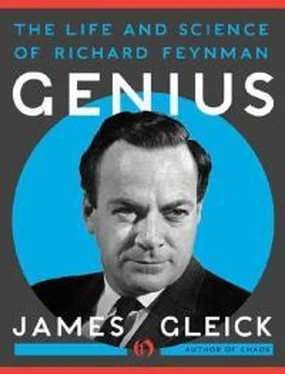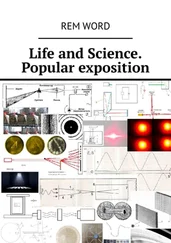Genius, Gerard summed up in 1774, “is confessed to be a subject of capital importance, without the knowledge of which a regular method of invention cannot be established, and useful discoveries must continue to be made, as they have general y been made hitherto, merely by chance.”
Hitherto, as wel . In our time he continues to be echoed by historians of science frustrated by the sheer ineffability of it al . But they keep trying to replace awe with understanding.
J. D. Bernal said in 1939:
It is one of the hopes of the science of science that, by careful analysis of past discovery, we shal find a way of separating the effects of good organization from those of pure luck, and enabling us to operate on calculated risks rather than blind chance.
Yet how could anyone rationalize a quality as fleeting and accident-prone as a genius’s inspiration: Archimedes and his bath, Newton and his apple? People love stories about geniuses as alien heroes, possessing a quality beyond human understanding, and scientists may be the world’s happiest consumers of such stories. A modern example: A physicist studying quantum field theory with Murray Gell-Mann at the California Institute of Technology in the 1950s, before standard texts have become available, discovers unpublished lecture notes by Richard Feynman, circulating samizdat style. He asks Gell-Mann about them. Gell-Mann says no, Dick’s methods are not the same as the methods used here. The student asks, well, what are Feynman’s methods? Gell-Mann leans coyly against the blackboard and says, Dick’s method is this. You write down the problem. You think very hard. (He shuts his eyes and presses his knuckles parodically to his forehead.) Then you write down the answer.
The same story appeared over and over again. It was an
old genre. From an 1851 tract titled Genius and Industry : (A professor from the University of Cambridge calls upon a genius of mathematics working in Manchester as a lowly clerk.) “… from Geometry to Logarithms, and to the Differential and Integral Calculus; and thence again to questions the most foreign and profound: at last, a question was proposed to the poor clerk — a question which weeks had been required to solve. Upon a simple slip of paper it was answered immediately. ‘But how,’ said the Professor, ‘do you work this? show me the rule! … The answer is correct but you have reached it by a different way.’
“‘I have worked it,’ said the clerk, ‘from a rule in my own mind. I cannot show you the law — I never saw it myself; the law is in my mind.’
“‘Ah!’ said the Professor, ‘if you talk of a law within your mind, I have done; I cannot follow you there.’”
Magicians again. As Mark Kac said: “… The working of their
minds
is
for
al
intents
and
purposes
incomprehensible. Even after we understand what they have done, the process by which they have done it is completely dark.” The notion places a few individuals at the margin of their community—the impractical margin, since the stock in trade of the scientist is the method that can be transferred from one practitioner to the next.
If the most distinguished physicists and mathematicians believe in the genius as magician, it is partly for psychological protection. A merely excel ent scientist could suffer an unpleasant shock when he discussed his work with Feynman. It happened again and again: physicists would wait for an opportunity to get Feynman’s judgment of a result on which they had staked weeks or months of their career. Typical y Feynman would refuse to al ow them to give a ful explanation. He said it spoiled his fun. He would let them describe just the outline of the problem before he
would jump up and say, Oh, I know that … and scrawl on the blackboard not his visitor’s result, A , but a harder, more general theorem, X . So A (about to be mailed, perhaps, to t he Physical Review ) was merely a special case. This could cause pain. Sometimes it was not clear whether Feynman’s lightning answers came from instantaneous calculation or from a storehouse of previously worked-out—
and unpublished—knowledge. The astrophysicist Wil y Fowler proposed at a Caltech seminar in the 1960s that quasars—mysterious blazing radiation sources lately discovered in the distant sky—were supermassive stars, and Feynman immediately rose, astonishingly, to say that such
objects
would
be
gravitational y
unstable.
Furthermore, he said that the instability fol owed from general relativity. The claim required a calculation of the subtle countervailing effects of stel ar forces and relativistic gravity. Fowler thought he was talking through his hat. A col eague later discovered that Feynman had done a hundred pages of work on the problem years before. The Chicago astrophysicist Subrahmanyan Chandrasekhar independently produced Feynman’s result—it was part of the work for which he won a Nobel Prize twenty years later.
Feynman himself never bothered to publish. Someone with a new idea always risked finding, as one col eague said,
“that Feynman had signed the guest book and already left.”
A great physicist who accumulated knowledge without taking the trouble to publish could be a genuine danger to his col eagues. At best it was unnerving to learn that one’s potential y career-advancing discovery had been, to Feynman, below the threshold of publishability. At worst it undermined one’s confidence in the landscape of the known and not known. There was an uneasy subtext to the genus of story prompted by this habit. It was said of Lars Onsager, for example, that a visitor would ask him about a new result; sitting in his office chair he would say, I believe
that is correct ; then he would bend forward diffidently to open a file drawer, glance sidelong at a long-buried page of notes, and say, Yes, I thought so; that is correct. This was not always precisely what the visitor had hoped to hear.
A person with a mysterious storehouse of unwritten knowledge was a wizard. So was a person with the power to tease from nature its hidden secrets—a scientist, that is.
The modern scientist’s view of his quest harkened back to something ancient and cabalistic: laws, rules, symmetries hidden just beneath the visible surface. Sometimes this view of the search for knowledge became overwhelming, even oppressive. John Maynard Keynes, facing a smal audience in a darkened room at Cambridge a few years before his death, spoke of Newton as “this strange spirit, who was tempted by the Devil to believe … that he could reach all the secrets of God and Nature by the pure power of mind—Copernicus and Faustus in one.”
Why do I cal him a magician? Because he looked on the whole universe and al that is in it as a riddle , as a secret which could be read by applying pure thought to certain evidence, certain mystic clues which God had laid about the world to al ow a sort of philosopher’s
treasure
hunt
to
this
esoteric
brotherhood… . He did read the riddle of the heavens.
And he believed that by the same powers of his introspective imagination he would read the riddle of the Godhead, the riddle of past and future events divinely foreordained, the riddle of the elements and their constitution… .
In his audience, intently absorbing these words, aware of the cold and the gloom and the seeming exhaustion of the speaker, was the young Freeman Dyson. Dyson came to accept much of Keynes’s view of genius, winnowing away
Читать дальше












